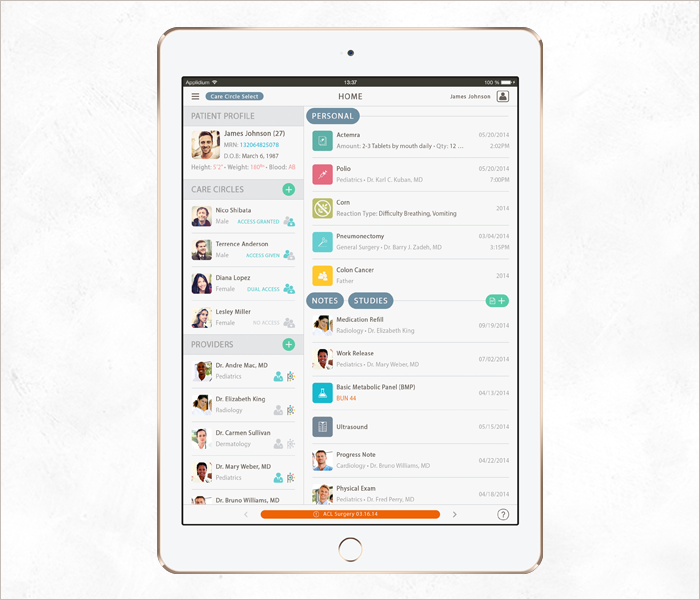A LED Vest for Puppies and Other Wild Ideas That Just Got Funded
A new tool for runners moves beyond calories to measure the intensity of workouts
/https://tf-cmsv2-smithsonianmag-media.s3.amazonaws.com/filer/a2/ed/a2ededc8-c404-4b9b-94b8-63b4b055b8ec/disco_dog.jpg)
While GPS features in smartphones have made them easier to track down when lost, wallets and other items are still challenging to recover. F-stop, a St. Louis company that sells camera gear, has come up with a comprehensive solution.
KitSentry is a three-part "ecosystem." It includes a Bluetooth and WiFi-enabled field device that can be placed into any bag, NFC ID tags that can be stuck on key items and the Sentry app. Once the field device is activated and hooked up to the app, the user can monitor the bag at all times, see its location and also track its contents, to know whether any have been removed. The maker of KitSentry recently raised $27,039 on Kickstarter.
Here are five other quirky ideas that were funded this week:
Disco Dog: Smartphone Controlled LED Dog Vest (Goal: $15,000 Raised: $22,757 on Kickstarter)
The party hasn't really started until there's a dachshund tearing up the dance floor. It was only a matter of time before wearable tech reached puppies—in this case, a smartphone-controlled velcro vest studded with 256 colorful LED lights. The aptly named Disco Dog displays brilliant rainbows and dazzling patterns of sparkles and stripes. Produced by Party New York, the flashy outfit is customizable for dogs of all sizes. The lights can even spell out messages, such as "Lost Dog," in the unlikely event that an owner loses a pup wearing this ridiculous getup.
PocketLab (Goal: $25,000 Raised: $114,805 on Kickstarter)
There are many devices available for us to track ourselves, but what about the world around us? PocketLab is a rectangular, portable sensor that adheres to soccer balls, backyard rockets, you name it, and gathers a variety of data—acceleration, angular velocity, altitude, temperature, magnetic field, pressure and force—during homespun experiments. Invented by a mechanical engineer at Stanford, PocketLab aims to shift perceptions about science by making data collection and analysis fun and easy. The sensor connects wirelessly to a smartphone or tablet, and all the information it collects is uploaded to an app in real time and seamlessly converted to Google Doc or Microsoft Office files.
Project Ryptide (Goal: $10,000 Raised: $10,522 on Kickstarter)
Some high school students from Stamford, Connecticut were surprised when their class advisor told them that drones are primarly used for photography and wondered if they could enable the devices to do more. Inspired to apply them in a new way, the intrepid group devised Project Ryptide, a 3D-printed, lightweight plastic add-on to any drone, which includes a life preserver that self-inflates. If a swimmer needs help, the drone is able to quickly fly over and drop the rescue equipment—helping any lifeguards that may be on duty. The product's name calls attention to its main focus, which is to address the threat of dangerous riptides that quickly drag thousands of unsuspecting swimmers out to sea each year in the United States.
While bands like Fitbit and Jawbone offer helpful numbers of calories burned and steps taken, a new small, wearable device that hooks onto runners' waistbands, aims to provide one definitive number that captures intensity of training. Stryd, the brainchild of a team of Princeton engineers at the Boulder, Colorado startup Athlete Architect, calculates a runner's power, taking terrain into account, and sends that stat to a sports watch or smartphone. The engineers don't exactly divulge how they calculate "power," but the measure, reported in watts, is supposed to reflect the degree to which runners push themselves during workouts. (Jogging, they say, takes about 150 watts, while a hard workout requires double that or more.) Until now, heartrate has been the metric used to measure this effort.

Obtaining and deciphering medical records can be overwhelming and complicated. The California company Zobreus Medical Corporation is developing an app called POEM, short for patient-oriented electronic medical record, that aims to streamline this process, making it easy for providers and patients to quickly stay up-to-date with their information. Much like Mint brings together different banking and investment accounts in one place, POEM retrieves information from different providers and organizes it simply and cleanly on one platform. It enables patients to track previous prescriptions, doctor's notes and procedures. Users can also create "care circles," where they can stay in the loop on the medical developments of family and friends.
/https://tf-cmsv2-smithsonianmag-media.s3.amazonaws.com/accounts/headshot/profile.jpg)


/https://tf-cmsv2-smithsonianmag-media.s3.amazonaws.com/accounts/headshot/profile.jpg)